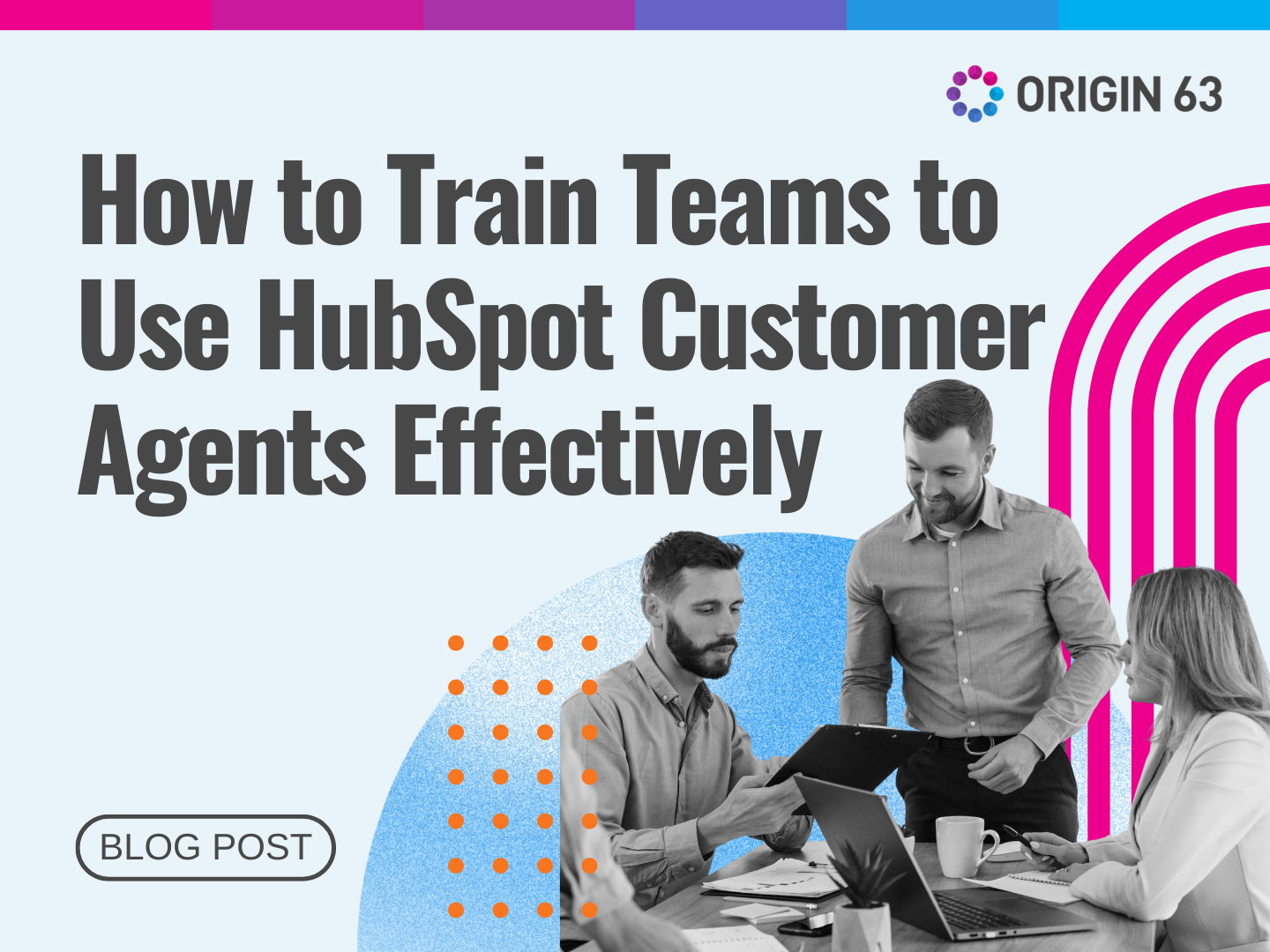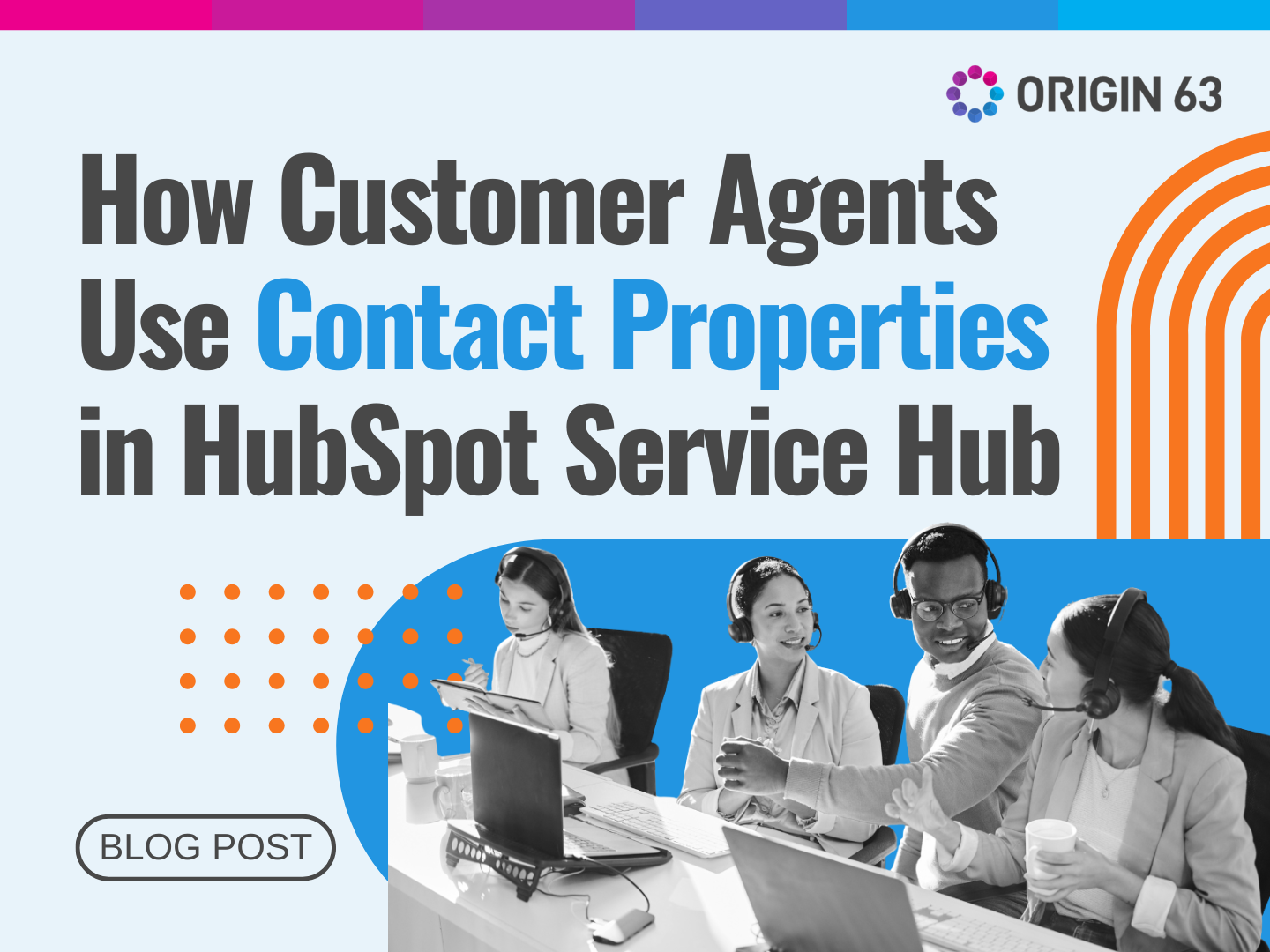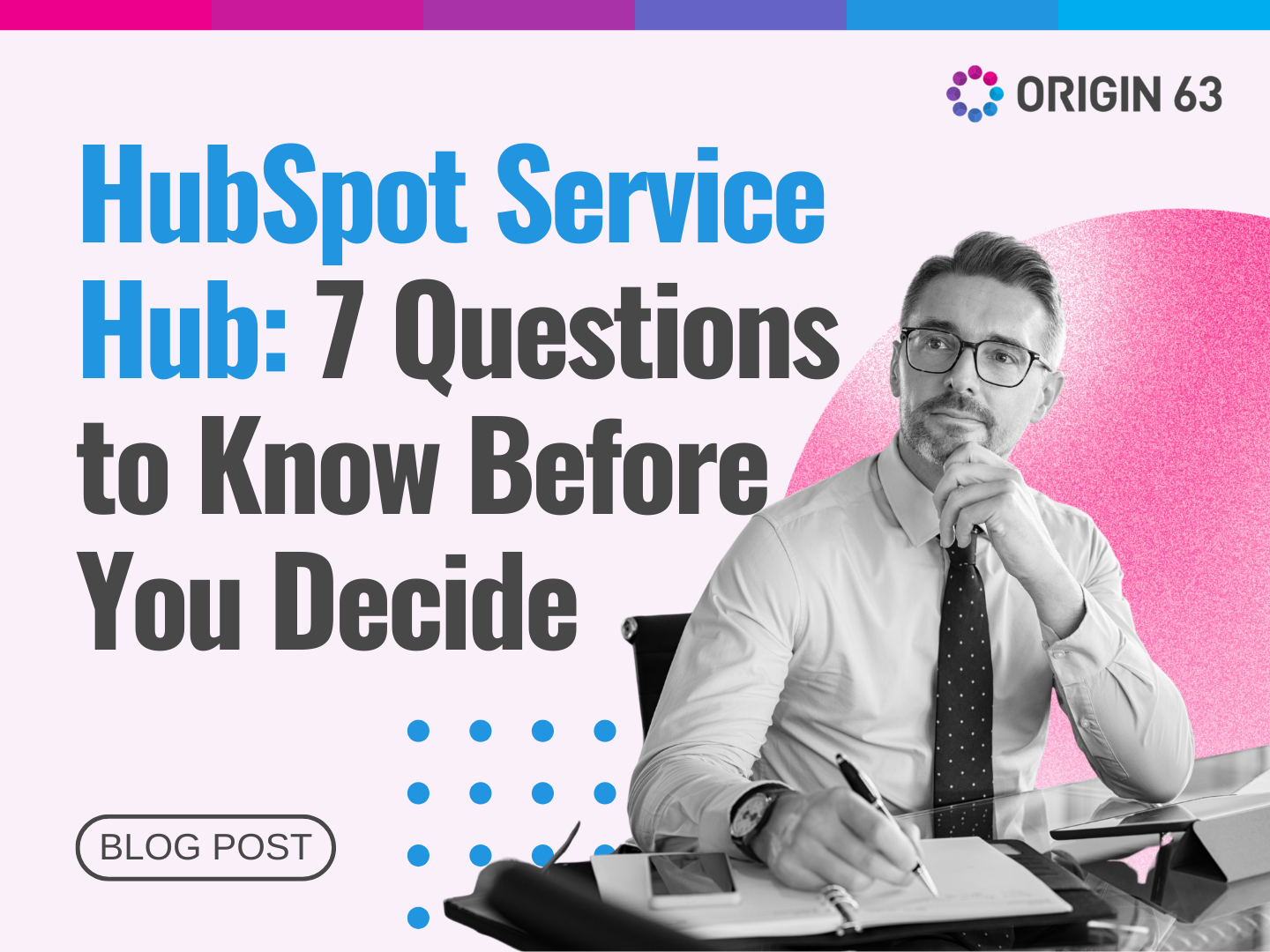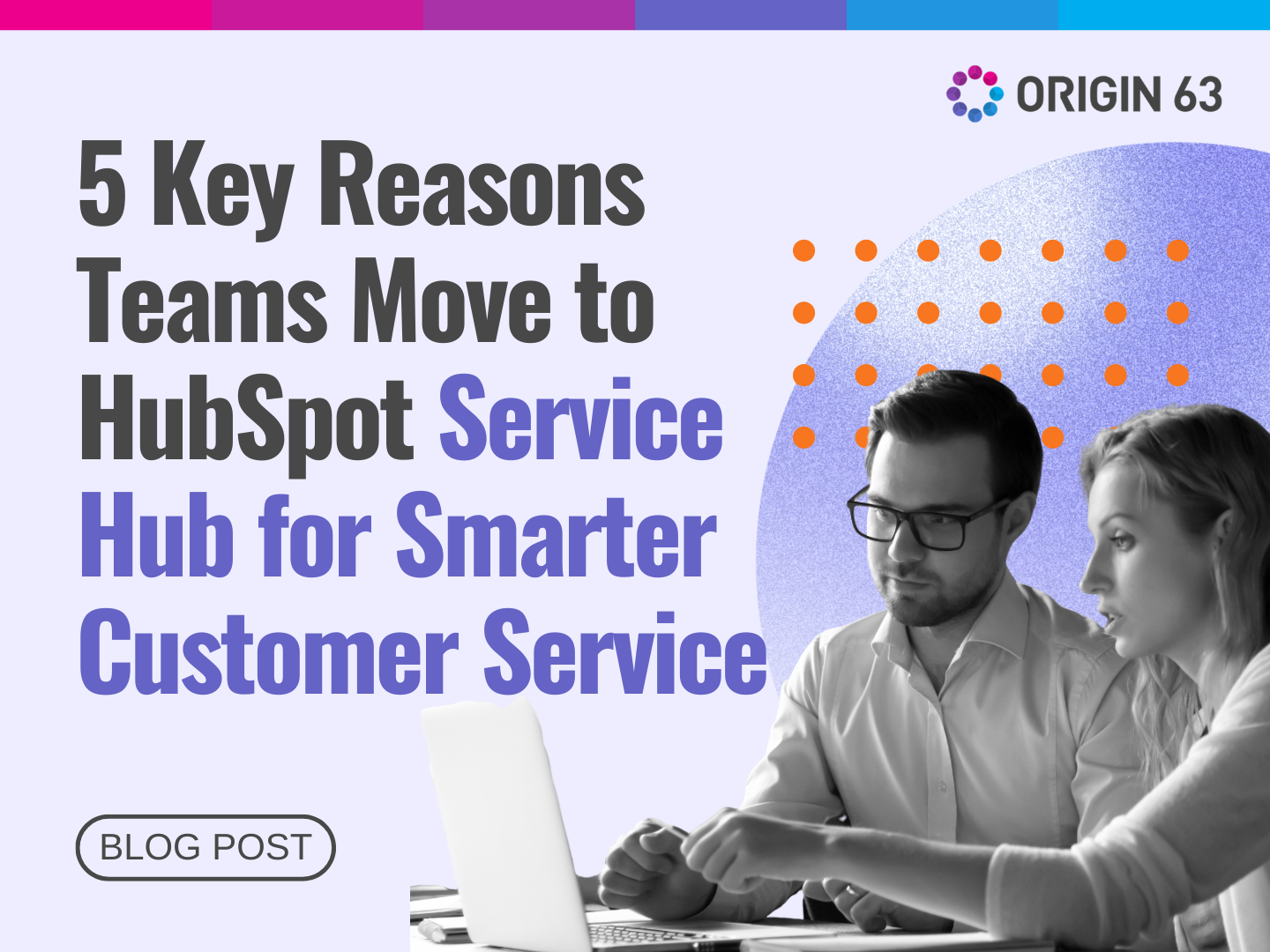Many mid-market manufacturers still rely on legacy CRMs or spreadsheets. These tools worked in the past, but if you want to scale, spreadsheets will slow your team down and create inefficiencies.
Old systems don’t deliver real-time data or smooth customer management. Instead of reducing risk, they often cause more downtime and errors.
This blog explains how manufacturers can modernize without halting production. You’ll learn the risks of staying with outdated systems, the benefits of upgrading, and the steps to a smooth CRM migration with Origin 63.
The Cost of Sticking with Legacy Systems

For many manufacturing leaders, the fear of disrupting production keeps them from modernizing. It feels safer to stick with familiar CRMs or spreadsheets, even if they are outdated.
But in reality, those old tools cause more disruption than they prevent. Over time, they create inefficiencies, errors, and lost opportunities that slow growth and frustrate teams.
Here is what manufacturers risk when they hold onto legacy systems:
1. Missed Opportunities from Poor Data Use
Legacy systems do not provide real-time insights, so teams spend hours piecing together information. Instead of driving growth, they are stuck fixing problems. Even companies that already use a CRM often fail to get the most from it.
Only 37% of sales reps feel their organization fully utilizes their CRM. That means valuable data sits unused while competitors with modern tools move faster and respond better.
2. Slower Operations and More Errors
With spreadsheets or disconnected tools, data has to be entered again and again. Every re-entry increases the chance of mistakes.
A single wrong detail on an order can stall production or create shipping delays. While it may seem easier to keep things as they are, these small errors pile up, and fixing them often takes more time than the original task.
3. Higher Downtime Risks
Leaders often assume that changing systems will slow everything down. But the opposite is true: outdated CRMs are fragile and require constant maintenance.
You may think avoiding change keeps operations stable, but sticking to old processes is actually counterproductive. Over time, crashes and downtime become more common, creating ripple effects that hurt the whole supply chain.
4. Strained Customer Relationships
Customers expect speed, accuracy, and proactive service. With outdated systems, teams cannot always deliver. Dealers wait too long for updates, and customers lose patience when problems take days to resolve.
The result is strained relationships and lost loyalty, something no manufacturer can afford in a competitive market.
Why Modernization in Manufacturing Matters

For manufacturers, upgrading to a modern CRM can mean making daily work easier, reducing errors, and giving teams more time to focus on their core expertise.
When your systems work for you instead of against you, you notice the difference in both operations and customer relationships.
Some of the benefits of modernizing include:
1. Faster Sales and Higher Revenue
If you still rely on manual spreadsheets or slow tools, you may notice your sales team spends more time fixing numbers than closing deals. This delay means quotes take longer, orders pile up, and customers wait.
A modern CRM speeds all of this up by automating repetitive tasks and keeping data accurate. Businesses that adopt CRM see the impact.
45% of businesses report higher sales revenue growth after adopting a CRM. That growth comes from giving your team the ability to act faster and sell more with less effort.
2. Stronger Dealer and Customer Management
If you manage multiple dealers or distributors, you may already feel the pressure of juggling calls, orders, and follow-ups. Without a central system, details slip through the cracks and customers are left chasing updates.
A modern CRM keeps every interaction in one place. Instead of scrambling through emails or sticky notes, your team can pull up a complete view of each dealer or customer instantly. This not only saves time but also builds trust because every response is consistent and accurate.
3. Improved Service and Satisfaction
If you notice that your service team struggles to keep up with requests, the issue might not be effort but outdated systems. Old tools slow down ticket management, leaving customers waiting longer than they should.
A modern CRM like HubSpot gives your team the ability to track issues in real time, automate updates, and even flag problems before they escalate. The result is faster service, happier customers, and stronger long-term loyalty.
How to Modernize Without Halting Production

It’s normal to worry that a CRM migration will slow things down. The truth is, it doesn’t have to. With the right approach, you can modernize your CRM without downtime or disruptions to your shop floor. Here are strategies that make the process smooth and effective:
1. Use Phased Rollouts
If you’ve ever tried to replace a system all at once, you know how overwhelming it can be. A phased rollout keeps things manageable. Instead of flipping the switch overnight, you start small.
For example, you might move one department or one process into the new CRM first. Once that team is comfortable, you expand to others. This way, the business keeps running, and your team builds confidence step by step.
Think of it like updating machinery in your plant. You wouldn’t replace every machine in a single day. You’d phase it in to keep production steady. The same principle applies here.
2. Integrate with ERP and Logistics Systems
In manufacturing, a CRM can’t live on its own. It needs to work with your ERP and logistics systems to provide a clear view of orders, shipments, and customer interactions. Without integration, you’re still chasing data across multiple platforms.
When your CRM and ERP are connected, your sales team sees what’s happening on the production line, and your operations team sees how customer demand is shaping orders.
This real-time connection eliminates gaps and reduces costly errors. It’s one of the fastest ways to make your CRM valuable from day one.
3. Automate Quotes, Orders, and Service Requests
If your team is still handling quotes or service requests by hand, you already know how slow and error-prone it can be. A modern CRM lets you automate these steps so they move faster and more accurately.
Here’s what automation can do for you:
- Quotes: Build and send them instantly, without retyping the same details.
- Orders: Track progress automatically so teams and customers always know the status.
- Service Requests: Assign tickets to the right team without delay, ensuring no request slips through the cracks.
If you’ve noticed your team wasting hours on repetitive tasks, automation is the solution. It speeds up workflows, reduces errors, and frees your team to focus on higher-value tasks like customer relationships.
4. Train Teams for Adoption

Even the best system won’t succeed if your team isn’t on board. Training makes all the difference when it comes to adoption. Some businesses hesitate to adopt CRM because they’re worried about costs or employee resistance.
24% of businesses still hesitate to adopt CRM systems due to concerns over costs, complexity, and resistance to change. The good news is that with proper training and support, these fears fade quickly.
When you show your team how the new system makes their daily tasks easier, adoption comes naturally. Start with hands-on workshops, create quick reference guides, and celebrate small wins as teams get comfortable.
If you frame the CRM as a tool that helps them, not extra work to manage, you’ll see adoption rates rise.
Why Partner with Origin 63
Modernizing your CRM is a big step, and you don’t have to do it alone. Many manufacturers try to handle the process on their own and end up spending more time and money than expected.
Working with a partner like Origin 63 helps you avoid those struggles and move forward with confidence. Some reasons to get a partner include:
1. Expert Guidance Every Step of the Way
If you’ve never managed a CRM migration before, it can feel overwhelming. You may not know where to start, how to integrate with your ERP, or how to prepare your team for the change.
Origin 63 guides you through each stage, from planning and rollout to training and adoption, so you never have to guess what comes next.
2. A Process Built for Manufacturers
Manufacturing isn’t like other industries. Your workflows depend on precise timing, smooth logistics, and accurate customer management. That’s why you need a partner who understands these challenges.
At Origin 63, we design CRM strategies with manufacturers in mind, making sure your sales, service, and operations teams all benefit from the upgrade.
3. Confidence in the Transition
One of the biggest fears leaders have is that modernization will interrupt production. We know how important it is to keep your lines moving and your customers happy.
With Origin 63, you get a phased, strategic approach that ensures stability while bringing your business up to speed with modern tools.
Moving Forward with Confidence
Legacy CRMs and spreadsheets might feel safe, but they create hidden costs in the form of errors, downtime, and strained customer relationships.
Modernization offers a better path forward. Upgrading to a modern CRM gives your team the tools to work faster, manage dealers and customers more effectively, and deliver stronger service.
Modernization doesn’t have to disrupt your business. Phased rollouts, smart integrations, automation, and focused training allow you to make the transition smoothly while keeping production steady.
In the end, you’re left with a business that runs more efficiently and serves customers with greater accuracy and speed.
Take the Next Step
Work with Origin 63 to modernize your CRM using HubSpot and keep your operations running without interruption. Our team will guide you through the process, from planning to adoption, so you can move forward with confidence and set your business up for long-term success.
Modernize without halting production on HubDesk!














.png?width=90&height=90&name=Arrows%20Partner%20Badge-test%20(1).png)

